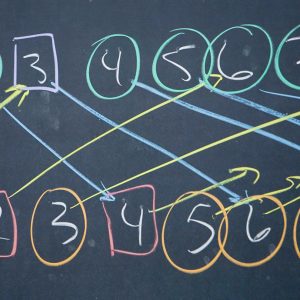Degree Requirements
Our mathematics majors provide a rigorous introduction to the central ideas of algebra and analysis, complemented with electives of direct interest to students who intend to pursue careers in actuarial science, data analysis, finance, higher education, management, secondary education, and many other fields in which mathematical techniques are used or taught. Students who have pursued less mathematics-centered careers, like law and medicine, have found that the mathematician’s habits of logical thought and careful abstraction are valuable there, too. Small upper-level classes, seminars, and independent study and research projects give mathematics students the opportunity to study particularly interesting topics in depth.
The interdisciplinary major in math and economics gives mathematically talented students with career plans in economics a wide range of mathematical skills and significant experience with the fundamental ideas of economics. It also distinguishes them from the thousands of students around the country who major in economics or business. A distinctive feature of the program is the senior capstone experience, in which students integrate their study of mathematics and economics.
Major Requirements
- Bachelor of arts in mathematics (Class years 2026 and 2027)
- Bachelor of arts in mathematics (Class years 2028 and later)
- Bachelor of science in mathematics
- Bachelor of arts in mathematics and economics
Note: It is important that students who wish to major in mathematics take Mathematics 272 and 290 during the first two years to ensure the widest possible selection of electives in the third and fourth years.
Information regarding Math 272, Math 290 and Math 300 relevant to the upcoming registration for Spring 2026 courses:
- Math 162 is now a corequisite for 272. Effective with the Class of 2027, Math 272 will become a required course for the A.B. Major (replacing Math 300) and for the B.S. Major (for which Math 300 remains required). Students interested in any of the mathematical sciences are encouraged to enroll in Math 272 in their first or second years at Lafayette.
- For the upcoming registration, Math 263 or Math 272 will serve as a corequisite for enrollment in Math 290. (Beginning in Fall 2027, Math 272 will become the sole corequisite for Math 290.)
- For the upcoming registration, Math 290 remains the only prerequisite for Math 300. In particular, Math 272 is not a requirement for enrolling in Math 300. That said, students who have taken Math 272 may now earn credit for Math 300, and are certainly encouraged to enroll in the course if they have completed Math 290. (Beginning in Fall 2027, Math 272 will join Math 290 as a prerequisite for Math 300.)
In all three major programs, it is strongly recommended that students take the time to plan ahead. Some courses are prerequisites for other courses, some courses are co-requisites for others, and some courses are only available in certain semesters or certain years. Planning will help you make sure you’ll get to take the courses you want to take, when you want to take them.




